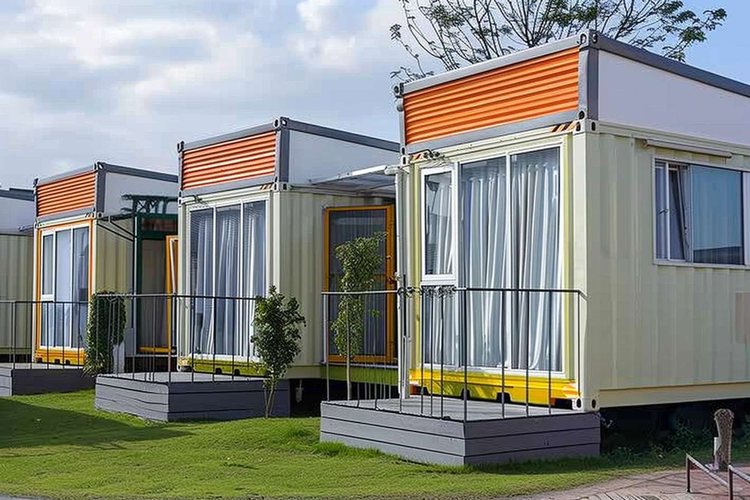Benefits of Prefabricated Homes in Canada
Prefabricated homes are revolutionizing the Canadian housing market with their rapid construction, cost efficiency, and environmental benefits. These homes not only offer significant savings and energy efficiency but also meet the country’s sustainability goals. As a promising solution to the housing crisis, understanding prefabricated homes is crucial for modern housing needs in Canada.

Exploring the Benefits of Prefabricated Homes in Canada
The Canadian prefab home industry has experienced remarkable growth due to several compelling advantages over traditional stick-built construction. Quality control stands as one of the most significant benefits, as factory construction occurs in climate-controlled environments free from weather delays and material damage. This controlled setting allows for precise measurements, consistent craftsmanship, and rigorous quality inspections at every stage of production.
Construction timelines represent another major advantage, with most prefab homes completed in 3-6 months compared to 6-12 months for traditional builds. This accelerated timeline reduces labor costs, minimizes weather-related delays, and allows homeowners to move in significantly faster. Additionally, the standardized manufacturing process reduces material waste and enables bulk purchasing of components, contributing to overall cost savings.
Cost Efficiency and Energy Savings
Prefabricated homes deliver substantial cost efficiency through streamlined manufacturing processes and reduced construction waste. Factory production enables precise material calculations, eliminating the typical 10-15% waste factor associated with traditional construction. Labor costs are also reduced due to faster assembly times and the specialized efficiency of factory workers.
Energy savings represent a long-term financial benefit of prefab homes. Modern prefabricated construction incorporates advanced insulation systems, high-performance windows, and energy-efficient HVAC systems as standard features. These homes often exceed provincial energy codes, with some models achieving net-zero energy consumption. Canadian prefab homeowners typically report 20-40% lower utility bills compared to conventional homes of similar size.
The controlled factory environment also allows for better sealing of the building envelope, reducing air leakage and improving overall thermal performance. This enhanced energy efficiency is particularly valuable in Canada’s diverse climate zones, from the mild coastal regions to the harsh northern territories.
Environmentally Friendly and Sustainable Living
Sustainability has become a cornerstone of modern prefabricated home construction in Canada. Factory production significantly reduces construction waste, with many manufacturers reporting waste reduction of up to 50% compared to traditional building methods. This waste reduction translates directly into environmental benefits and cost savings.
Many Canadian prefab manufacturers prioritize sustainable materials, including FSC-certified lumber, recycled steel components, and low-VOC finishes. The controlled manufacturing environment also enables better implementation of green building technologies such as solar panel integration, rainwater harvesting systems, and high-efficiency mechanical systems.
The carbon footprint of prefab homes is typically lower than traditional construction due to reduced transportation of materials to job sites, shorter construction timelines requiring less equipment operation, and improved energy efficiency throughout the home’s lifespan. Some manufacturers have achieved carbon-neutral production processes, making prefab homes an excellent choice for environmentally conscious Canadians.
Cost Comparison of Canadian Prefab Home Providers
| Provider | Home Size Range | Cost per Square Foot | Key Features |
|---|---|---|---|
| Bonneville Homes | 1,200-3,000 sq ft | $180-$250 CAD | Custom designs, energy-efficient packages |
| Westwood Homes | 800-2,500 sq ft | $165-$220 CAD | Modular construction, quick delivery |
| Silverpoint Homes | 1,000-4,000 sq ft | $200-$280 CAD | Luxury finishes, advanced automation |
| Kent Homes | 1,100-2,800 sq ft | $175-$240 CAD | Maritime focus, hurricane-resistant design |
Prices, rates, or cost estimates mentioned in this article are based on the latest available information but may change over time. Independent research is advised before making financial decisions.
The pricing of prefabricated homes in Canada varies significantly based on size, customization level, and regional factors. Basic prefab homes typically start around $165 per square foot, while luxury models with premium finishes can exceed $280 per square foot. These costs generally include the manufactured home structure but may not include site preparation, foundation work, utility connections, and local permits, which can add $30,000-$80,000 to the total project cost.
Why You Should Learn More About Prefabricated Homes Today
The Canadian prefab home market continues to evolve with technological advances and increased consumer acceptance. Current trends include smart home integration, net-zero energy designs, and customizable modular systems that allow homeowners to expand their homes as their needs change.
Provincial and federal incentives for energy-efficient housing make prefab homes even more attractive financially. Programs such as the Canada Greener Homes Grant can provide rebates of up to $5,000 for qualifying energy-efficient features commonly found in modern prefab construction.
The growing acceptance of prefab homes by lenders and insurance companies has also improved financing options. Many Canadian banks now offer construction-to-permanent loans specifically designed for prefabricated home purchases, making the buying process more straightforward than ever before.
Prefabricated homes represent a compelling solution for Canadians seeking affordable, energy-efficient, and environmentally responsible housing options. With advancing technology, improved design flexibility, and strong financial incentives for sustainable construction, prefab homes are positioned to play an increasingly important role in addressing Canada’s housing challenges while providing homeowners with high-quality, customizable living spaces that meet modern lifestyle demands.




